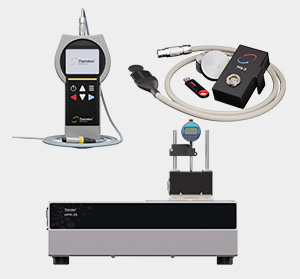
Portable transient plane source meter for the thermal conductivity, thermal diffusivity, specific heat of solids, pastes and powders.
Best for:
Standard Test Method
Temperature Range
Portable heat flow meter for measuring small samples of insulation and construction materials.
Best for:
Standard Test Method
Temperature Range
The two types of thermal conductivity meter are steady-state and non steady-state, also called transient. Steady-state are more suitable for precise, controlled environments where accuracy is critical while non-steady-state or transient methods are ideal for quick and versatile assessments.